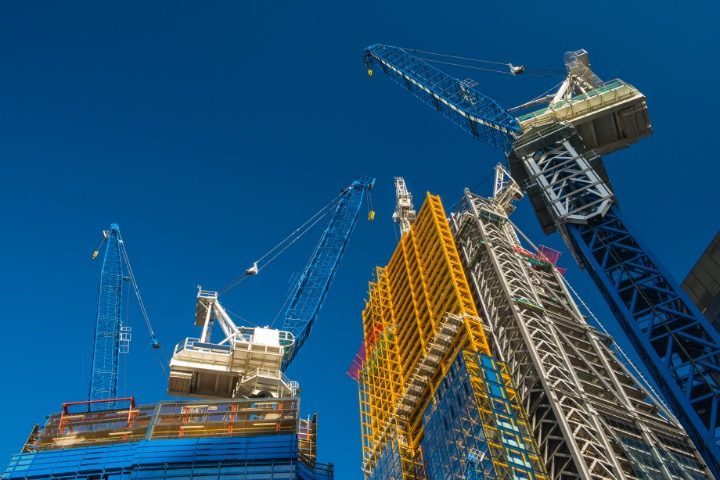
In the latest example of climate insanity, Boston Mayor Michelle Wu has issued an executive order banning the use of all fossil fuels in new city building projects. The order also extends to major renovations of existing city buildings. Wu announced the order on July 31.
One big caveat — projects currently under construction, under procurement, or simply in the design stage are exempt from the new rule. But going forward, any new civic building (or any renovation) in Boston must be built without the aid of fossil fuels.
“Week after week, we see the signs of extreme heat, storms, and flooding that remind us of a closing window to take climate action,” Mayor Wu said in explanation. “The benefits of embracing fossil fuel-free infrastructure in our City hold no boundary across industries and communities, and Boston will continue using every possible tool to build the green, clean, healthy, and prosperous future our city deserves.”
At a city hall press conference announcing the measure, Wu said: “This executive order is a long time coming. It is dealing with what is fully within the city’s control in terms of public buildings that will be newly built or undergoing a major reconstruction and renovation, and committing that they will be fossil-fuel free.”
The new declaration is in line with Boston’s desire to be a “Green New Deal City.” In its charter, the Boston Green New Deal Coalition describes itself as a “network of groups and individuals committed to addressing economic, racial, environmental, and climate injustice in Boston using an anti-racist approach.”
Wu’s silly executive order would appear to fit in nicely with that plan.
“As part of the Green New Deal for Boston, we are taking an all-of-government approach, finding ways for our Cabinets and departments to play a role in climate action,” said Oliver Sellers-Garcia, the city’s Green New Deal director. “This Executive Order directs and empowers the Operations Cabinet and facilities managers across the City to lead the decarbonization of our building portfolio. In addition to new buildings, this order applies to major renovations because, often, the most sustainable way to make a green building is not to start from scratch.”
Wu’s order did not address the issue of what it will cost Bostonians financially.
“It will have a very large impact in the cost of development, and more importantly, if that development ever did occur in the electrical supply capacity we currently have in our utility grid,” said Greg Vasil, CEO of the Greater Boston Real Estate Board.
“The real estate company is resilient, and if Boston is not a conducive business environment for development, I am sure other nearby communities would welcome the enhancement this would mean to their property tax base,” he added.
But, as of now, it’s a difficult future to imagine. For example, fossil fuels are used heavily in the creation of glass, concrete, and steel — will those materials be banned from Boston civic building projects?
According to architect Simon Sturgis, the answer lies in choosing more “sustainable” materials.
“It’s about choosing things slightly more carefully,” claims Sturgis. “Using less concrete and more timber, or specifying recycled aluminum for window frames.”
“It’s also crucial to understand the relationship between improving operational emissions and the carbon costs of doing so. Triple-glazed windows might reduce heating requirements, but their embodied carbon is vast,” he added.
Besides the materials, the logistics of not using fossil fuels in any construction seem insurmountable. Will the city not use fossil fuel-powered cranes or dump trucks? If so, what sort of technology will they use to accomplish all of the heavy hauling involved in major construction? Will Boston gather teams of horses to deliver building materials and haul detritus away? And what will those materials consist of? Will future Boston buildings be made exclusively of wood, and will that wood be procured without the use of any fossil fuels?
Some sort of cutback in the use of fossil fuels might seem more reasonable. An outright ban on fossil fuels for building projects appears to be something to appease climate zealots, but is probably unrealistic in practice.
Chicagoans may want to take note that new Mayor Brandon Johnson was on hand for Wu’s announcement and praised it effusively.
Thankfully for the rest of Boston, the ban on fossil fuels for construction applies only to municipal projects — at least for now.




